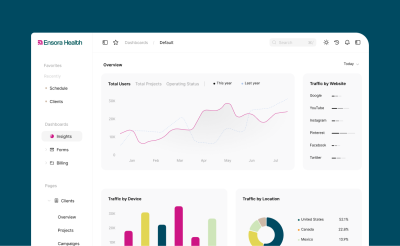How to handle no-shows and cancellations

In a client-centric profession like therapy, no-shows and cancellations can dramatically affect your bottom line. You probably only schedule a few appointments each day, so when one of those appointments cancels or doesn’t show up, it can be hard to recover financially. Each missed appointment can represent $100 or more in lost revenue. Multiply that by how many appointments you miss each month, and it could be in the thousands.
Let’s talk about how to minimize cancellations and no-shows by implementing a policy and a set of procedures.
Have a policy in place
Your no-shows and cancellation policy should be written down and available for all to see. That includes you, your office staff, and your clients.
Your no-shows and cancellation policy should be part of your client intake forms (it’s a good idea for them to sign off on them). It should be prominently displayed on your reception desk. It should live in a link on your website. And, it should be verbally recited to your clients at the time of their initial appointment and the time of their follow-up appointment.
Include your cancellation policy in your workflow
It’s important to have workflows in place for when a client cancels. This can include charging a fee if applicable, reaching out to the client, and rescheduling the appointment. Being prepared can prevent things from slipping through the cracks during a busy day. In fact, with TheraNest, you can configure your practice’s cancellation policy workflow for rescheduled, canceled, and no-show appointments, which minimizes manual work and recovers lost revenue. Get help learning how to set up your cancellation policy in TheraNest.
Hand over an appointment card
Before your client leaves the office, hand out an appointment card that clearly states when you expect to see them again. Or, if you prefer to embrace technology, be sure to send over an immediate text that confirms your client’s upcoming appointment. (You can use TheraNest to do this. We’ll discuss how a little further down this post).
See clients sooner
Are you so booked that you can’t see a client for weeks or months down the road? It may be time to temporarily stop accepting new clients. You don’t want your new clients to wait too long. That’ll give them enough time to justify not going to therapy, or even find another therapist to see them.
Avoid this by tightening your schedule and seeing clients sooner rather than later.
Educate your clients on the importance of therapy
Some people don’t value therapy enough to continue coming. They may initially schedule an appointment, but when it’s time to show up, they decide against going. They’re not sure if they need therapy after all.
This is why it’s crucial for you to give your clients enough information about why therapy is important. You can leverage therapy software to host a library of educational content that can be shared through secure patient portals.
Check up on your no-show clients
Don’t assume you know why your no-show clients didn’t make their appointment. Instead of coming to your own conclusions, or not even giving it a second thought, why not find out why they didn’t show up to the scheduled appointment? Call them at the time of their missed appointment and leave a message, if they don’t pick up.
Understand the reason behind the cancellations
It’s important to understand why your clients are canceling. Many times it’s a personal emergency, but some cancellations can actually give you insight on how to operate your private practice.
For example, let’s say your client has canceled an upcoming appointment due to a job lay off. You find out that his employer is closing and doing massive layoffs. This can not only affect your current clients, but also the future of your practice.
Another example could be a change in insurance. If you notice a trend of clients changing insurance carriers, it may benefit you to look into accepting that insurance in your private practice.
Take notes
After you’ve been in private practice for a while, you’ll find that a certain group of people will be reliably unreliable. They’ll schedule and cancel, reschedule and then no-show.
While many practices stop seeing a client after two no-shows, you may decide to be more lenient.
It’s always a good idea to notate their client profile so you and your staff are aware that this client has a history of canceling and no-showing. You may want to take special care in following up with the client or even implementing a fee, which brings me to my next point…
Implement a fee
Sometimes, you need to draw a line in the sand and warn your clients that if they no-shows or cancel, you will charge a fee. Make sure that your clients understand your no-shows or cancellation policy from the beginning.
That means on the initial call before the first appointment is confirmed.
It also means during your first session with the client. You should be clear about when and why you charge.
Consider prepay
If you find that you’re getting way too many no-shows in your private practice, consider charging your clients before their appointment.
In fact, as soon as the client makes an appointment, require a nonrefundable prepayment that will go towards the appointment.
You can charge the full price or a percentage.
This will give your clients the motivation to keep the appointment instead of forfeit their money.
Follow up with reminders
It’s a good practice to set the appointment before your client leaves the office, but you simply cannot depend on appointment cards alone. If that next appointment is next week, next month, or even further down the line, your client may actually forget that they’ve set an appointment with you. And that appointment card may be long gone.
This is why you’ve got to remind them. Make sure you have a rock-solid system in place to follow-up on the day before the appointment. You can have your front office call, text, or email the client. If you do, just be careful not to record any sensitive information.
Reduce mistakes with the right software
Instead of having your office staff call, email, or text clients, you can program TheraNest to do that for you automatically. Leave recorded voice messages and rest easy knowing you always have a record of which clients were sent reminders and when. Because the records are digital, you’re not creating and storing paperwork – a big plus when you’re trying to go paperless. Some things can slip through the cracks when you’re running a busy practice, but TheraNest minimizes that human error. Start a 21-day free trial of our therapy software for one less thing to worry about in your day.






